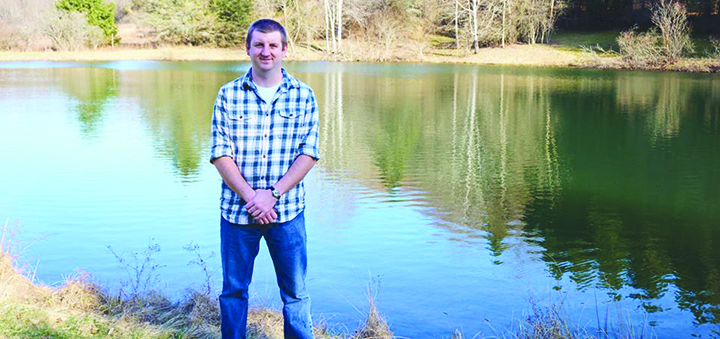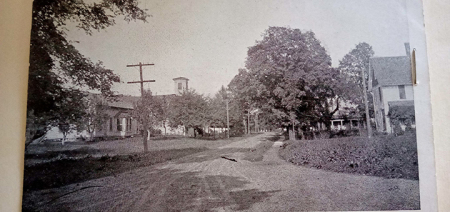Outdoor Chenango: Scent Elimination Or Scent Control
Published:
August 30th, 2023
By:
Eric Davis

One topic that is often discussed in the deer hunting world is the ability to remain undetected by the keen sense of smell possessed by white-tailed deer. A quick online search yields that a white-tailed deer can have up to 297 million olfactory receptors in their nose. This is substantially greater than the measly 5 million in the human nose. Knowing this, it is easy to understand why hunters go through extraordinary lengths to attempt to hide their odor when hunting.
Human body odor is produced as bacteria on the body break down sweat. This odor is something that deer do not experience in their daily lives, unless they are in urban areas. Therefore, when they detect the presence of a foreign odor, they think there is something wrong and run away.
I tend not to use the phrase scent elimination when talking about the way a hunter prepares before going out and while they are hunting. It would be almost impossible to remove every source of odor in the buildup to the hunt and during the hunt without being in a sterilized setting. However, I do subscribe to the notion of scent control. My definition of scent control is minimizing the amount of scent a hunter is exposed to before and during the hunt. It is useful for a hunter to develop a scent control plan and to stick to it to be consistent with it.
In the days and weeks leading up to the hunt, hunters can wash clothing and equipment to remove foreign odors that they may have developed since last season. There are a ton of options for laundry soap out there, the key is to use a soap with no UV brighteners.
Deer see at the end of the light spectrum into the ultraviolet wavelengths. A soap with UV brighteners will make your hunting clothes stick out like a sore thumb. If you use soaps with brighteners for your “regular” laundry, run a cycle with the brightener-free soap and non-hunting clothes before doing a load of camo and blaze orange. Some hunters will hang dry their clothing outdoors while others use the dryer.
The key is to remember you want to eliminate bacteria, so hanging clothes outside when it is cool and damp out may allow bacteria to grow on the clothing compared to the heat provided inside a dryer. Storing your clothes in an airtight container is critical so that any odors from around the house, garage, basement, or wherever you put them cannot get onto the clothes.
Some people like duffel bags while others prefer plastic totes or specially designed containers. Wipe out the container with antibacterial wipes or use soapy water and dry it out before putting the freshly cleaned clothes into it. Some hunters will put leaves, pine needles, or other items into the container to infuse the clothing with that odor. This would be considered a cover scent (using another smell to cover the hunter’s smell).
The day of the hunt, the hunter can wash with shampoo and soap to remove the sweat and bacteria from their skin. After washing, the hunter can put on the clothes they will wear hunting or they can put on another set of clean clothes to wear while they finish getting ready.
Then they can change into their hunting clothes at the last minute before heading out to minimize scent contamination. Many hunters prefer to put their hunting clothes on at the last moment, including after they drive to their hunting location. Vehicles typically have a lot of smells such as food, fuel, and exhaust odors. Once ready to go afield, many hunters will use a spray to reduce scent or as a cover (they spray is scented like dirt and leaves or acorns, etc.).
When in the field, hunters may continue to use cover scents. Some hunters use fox urine sprayed on their boots to mask any scent on their boots and to get the deer to think a fox walked through. A few companies make scented wafers that hunters can put around their stand as cover scent such as pine, acorns, or fresh dirt.
Another key element is to dress appropriately for the weather and the approach to the hunting location. Wearing a lot of heavy clothing before a long walk or an uphill walk to the stand can cause the hunter to overheat and get sweaty. This will just give the odor causing bacteria more to break down and create more odor.
The same thing goes for the vehicle ride to the location, if the heat is blasting in the truck the hunter may get sweaty before getting out to hunt.
At the end of the hunt, determine if the clothing you wore needs to be washed if you got sweaty in it or if you can put it back into the storage container until the next time you hunt. Sometimes I end up washing a piece of clothing 5 or 6 times throughout the fall.
While scent elimination may be near impossible, consciously thinking of ways to control scent can help you minimize the chances of being detected by a deer’s incredible nose.
Author: Eric Davis - More From This Author
Comments










